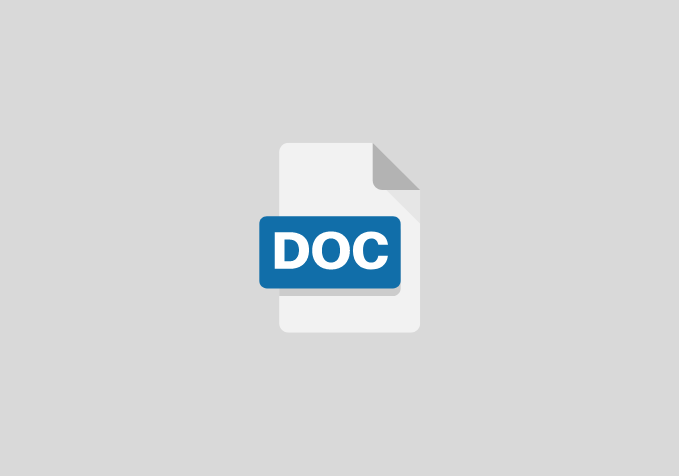The Impact Of Public Procurement Act On The Procurement Process In Nigeria Public Sector
CHAPTER ONE
Objective of the Study
The main rational of this study is to appraise the procurement act and its impact on the accountability of officers in public sector.
These objectives are as follows:
- To evaluate the procurement act as it relates to providing fair opportunities to suppliers through bidding in a competitive environment for all government business.
- To evaluate the contributions /impact of the act towards reducing and eliminating corruption in the procurement process and earn the respect of the public and supplier.
- To examine the contribution of the act toward Quality control and assurance
- To evaluate the contributions of the procurement act towards budget monitoring and control.
Chapter Two
Literature Review
This chapter is designed to look in to accomplished works of various authors on the subject matter “impact of public procurement Act on the Accountability of procurement officers in the public sector” given a special reference to conceptual clarification, due process and procurement in the Nigerian public sector, bureau of public procurement (BPP) on public procurement act 2007 as it affect constructors and consultants, code of conduct for public officers involved with procurement, procedures and documentation pre-requisite for the issuance of a certificate of “no objection” to MDAS. By bureau of public procurement (BPP) and complaints procedure under the public procurement. For the interest of the readers, the researcher gather most of the fact from different textbooks, journal and publications. How ever names of the authors, title of the books and pages were quoted, where extracted will be given for reference.
Concept of Public Procurement
According to the Wittig (1999) views public procurement as a business process within a given political system distinct consideration of integrity, accountability, national interest and effectiveness.
Chapter Three
Research Methodology
This chapter deals with the method, system and procedure which the researcher employed in data collection and for the analysis of various techniques in obtaining all the relevant data.
Area of Study
In the course of carrying out the research work emphasis were limited in carrying the activities of Kaduna State Ministry of Education which is located at State Secretariat, Independence Way, opposite Township Stadium, Kaduna North Local Government, Kaduna State.
All data will be restricted only to the information available from the management and staff of the Ministry.
Research Design
For this study, it is considered more appropriate and convenient to use descriptive research method. It is a descriptive research because it describe the current trend in the Federal Government Ministries and to this end solutions will be found to areas that are found deficient. Descriptive studies are distinguished for its flexibility with respect to the method used for gaining insight and developing research questions, in general of it is known by the clarity of the statement of the decision problem.
CHAPTER FOUR
Presentation and Analysis of Data
This chapter deals with the analysis of data as related to the research question.
The chapter equally confirmed an attempt in explaining the collected data and their attendant frequencies from the inception of this project work.
Presentation of Result
The presentation below shows the reaction of respondents to each question in tabular form, here the researcher administered 30 questionnaires but only 27 was filled and returned which present the sample size.
REFERENCES
- Ward-Geiger L.I., Silber G.K., Baumstark R.D. and Pulfer T.L. (2005): Characterization of Ship Traffic in Right Whale Critical Habitat. Taylor & Francis Inc. doi:10.1080/08920750590951965. ISSN 0892-0753. Retrieved 22 August 2009.
- Wikimedia (2015): Oil Tanker. Wikipedia, the free Encyclopedia. Retrieved www.wikipedia.org/oil-tanker, 25th March, 2015.
- Wikimedia (2015): Oil Terminal. Wikipedia, the free Encyclopedia. Retrieved www.wikipedia.org/oil-terminal, 25th March, 2015.
- Williams T. (2012): Pipelines: Environmental Considerations. Agriculture, Environment and Natural Resources Journal. No 2012-37-E. Library of Parliament Research Publications.
- E.F. Ogunbodede, A.O. Ilesanmi and F. Olurankinse, Petroleum Motor Spirit (PMS) Pricing Crisis and the Nigerian Public Passenger Transportation System, The Social Sciences Volume: 5, Issue: 2, Page No.: 113-121, 2010. (10)
- Mobolaji E. Aluko, On Fuel Scarcity, Politics and NNPC, Burtonsville, MD, USA March 10, 2003, accessed from http://www.dawodu.com/aluko35.htm on 5th September 2011. (11)
- Anakwe Joseph Chimeleze, Brief Summary of the Nigerian Crude Oil and Gas Industry, accessed from www.nigeriancrudeoilandgas.com , on 20th September 2011. (12)
- Report of Vision 2020 National Technical Working Group on Transport, July 2009. (13)
- Federal Government of Nigeria Draft National Transport Policy, August 2010. (14)
- Imoh B. Obioh and R.O. Fagbenle, Energy Systems: Vulnerability – Adaptation – Resilience (VAR), Regional Focus: sub-Saharan Africa Nigeria, Report 2009. (15)


